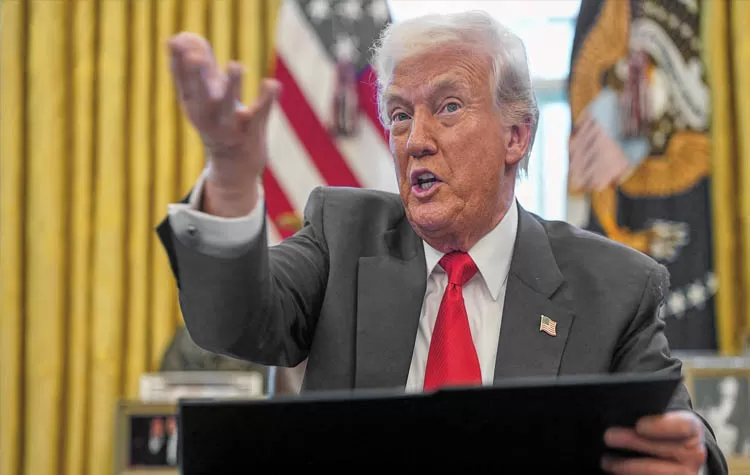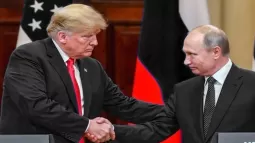
U.S. Trade Strategy Intensifies Under Trump Administration
On Sunday, former U.S. President Donald Trump reiterated his uncompromising stance on international trade, confirming that no country would be exempt from American tariffs. In particular, he highlighted China as a nation that would not receive any concessions under his trade agenda.
Trump emphasized that nations accumulating disproportionate trade surpluses or imposing non-tariff barriers against the United States would face strict tariff enforcement. “China will not be granted an exemption,” Trump stated via a post on Truth Social, criticizing the country’s historical trade practices with the U.S. He further announced that a 20 percent tariff would be imposed on select products, which he classified under a new category that includes substances like fentanyl.
Focus Shifts to Domestic Production of Electronics
Trump also indicated that semiconductors and electronic devices are under review in the upcoming National Tariff Investigation. He argued that domestic production of critical electronic components is necessary to safeguard national interests. “It’s clear these products must be made here. Depending on China puts America at risk,” he said.
The post criticized what Trump referred to as biased media coverage, alleging that reporters were ignoring key aspects of the administration’s trade policy. He called for a renewed focus on U.S. manufacturing, suggesting that the nation was entering a new phase of economic growth and self-reliance.
Commerce Secretary Confirms Tariff Strategy
Supporting Trump’s position, U.S. Commerce Secretary Howard Lutnick confirmed that existing exemptions on electronics are provisional. He noted that these items are likely to be included in the broader semiconductor tariff framework to be finalized within two months.
“We are prioritizing relocation of production facilities to the United States,” Lutnick stated. He highlighted the strategic importance of components such as semiconductors, chips, and flat panels. “Reducing our reliance on Southeast Asia for essential technologies is a key objective,” he added.
Lutnick explained that although current measures exclude certain electronic goods from retaliatory tariffs, they will soon fall under targeted categories aimed at bolstering domestic production and technological independence.
Policy Outlook
The government's emphasis on tariffs and the reshoring of manufacturing is aligned with its long-term vision for a more secure U.S. economy through lesser reliance on international supply chains. As the trade policy continues to develop, the electronics and semiconductor industries are likely to face higher regulatory attention and possible changes in production dynamics.













